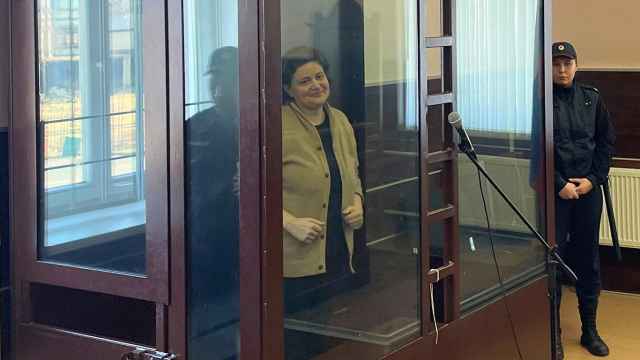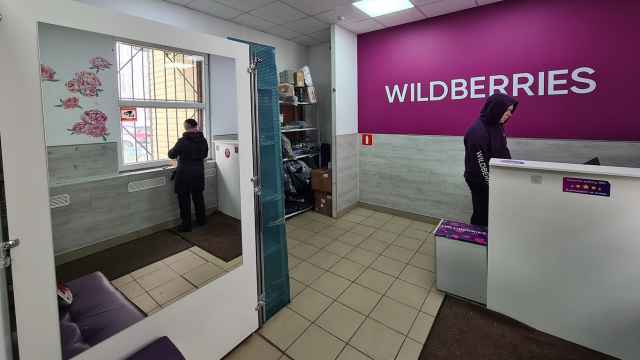Direct sales, also known as multi-level marketing, is a $3 billion business in Russia and growing fast, with companies like Amway, Avon, and Herbalife showing record results in 2010 and solid growth potential this year.
Amway, an American company that sells beauty, health and home-care products and has recruited an army of 930,000 individuals working as sales distributors, reached 15.2 billion rubles ($538 million) last year, beating its 2008 record of 14.9 billion.
"We had a very good year," Amway general manager Richard Stevens said this week.
Russia is the company's biggest European market and is home to nearly a third of its total worldwide sales force — with most of the activity taking place in Moscow.
The State Statistics Service does not track the results of the direct sales industry, but according to the Russia Direct Selling Association, or RDSA, sales in 2009 reached $3.1 billion, rising 12 percent from the previous year.
The country's direct sales market holds the seventh spot in the world market. The World Federation of Direct Selling Associations, or WFDSA, held its annual conference for the first time in Russia last year.
"Russia is one of the biggest world markets in direct selling, and demonstrates significant potential for further growth of the industry," WFDSA chairwoman Andrea Jung said in a statement on the RDSA web site.
A combination of inexpensive pricing and the Russian mentality to cut out the middleman are behind the industry's local success, observers say.
Makeup and beauty products lead the market with 78 percent share, while home and health goods represent 13 and 5 percent respectively.
Last year Oriflame, a Swedish beauty products giant that uses the direct sales model, opened a second factory and logistics center in Russia. The company's domestic sales rose 7 percent in the last quarter of 2010.
Herbalife makes NASDAQ's list of 10 health-care stocks with excellent growth prospects. In the last year, the company's stock has gained more than 100 percent.
"We are growing internationally, so here business is growing too," said one Herbalife Russia distributor who did not want to be named because of citizenship problems. He has been a distributor in Moscow for the last 19 years and now makes more than $70,000 per month, selling products and recruiting and training new employees.
Multi-level marketing companies, which gain customers and then turn them into sales people in a pyramid fashion, earned a bad reputation in Russia for overly aggressive advertising and recruiting, but apparently that's all in the past.
"When the Soviet Union collapsed it was a wild market, nobody understood what it was. It's not relevant to our business anymore," said the Herbalife distributor, who attempted to sell weight-loss products to the reporter during the interview.
The growth of these companies may be in part due to growing acceptance of the entrepreneurial spirit locally. Almost two-thirds of Russians, or 72 percent, view entrepreneurial activity positively, according to an Amway survey. In Europe, only 69 percent approve.
The level of competition has significantly grown, said Maxim Klyagin, an analyst with the investment holding Finam.
Higher School of Economics professor Olga Tretyak recently began to investigate nonstandard shopping trends. The research includes all shopping done outside of a traditional store environment.
"It's not a very clear zone, but it is clear that it's growing quickly," Tretyak said.
A Message from The Moscow Times:
Dear readers,
We are facing unprecedented challenges. Russia's Prosecutor General's Office has designated The Moscow Times as an "undesirable" organization, criminalizing our work and putting our staff at risk of prosecution. This follows our earlier unjust labeling as a "foreign agent."
These actions are direct attempts to silence independent journalism in Russia. The authorities claim our work "discredits the decisions of the Russian leadership." We see things differently: we strive to provide accurate, unbiased reporting on Russia.
We, the journalists of The Moscow Times, refuse to be silenced. But to continue our work, we need your help.
Your support, no matter how small, makes a world of difference. If you can, please support us monthly starting from just $2. It's quick to set up, and every contribution makes a significant impact.
By supporting The Moscow Times, you're defending open, independent journalism in the face of repression. Thank you for standing with us.
Remind me later.






